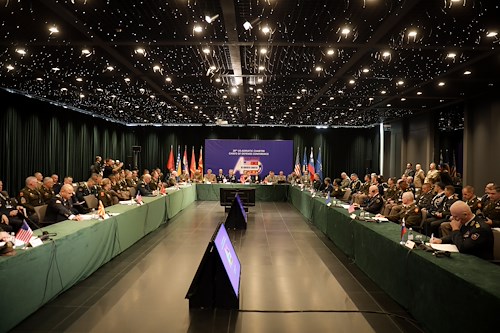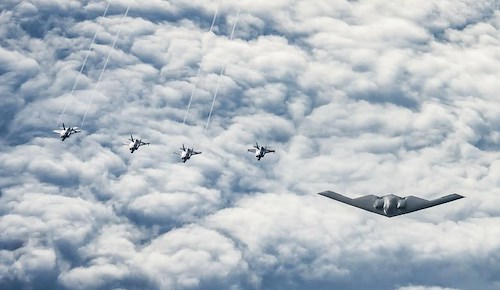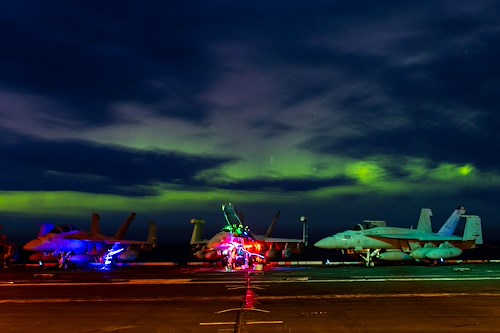Logistics professionals from U.S. European Command (USEUCOM) and the 21st Theater Sustainment Command (TSC) gained valuable experience as they wrapped up their participation in the Center for European Policy Analysis (CEPA)-sponsored Military Mobility Workshop this week.
The workshop, rescheduled from earlier in the year and shifted virtually due to COVID, brought together experts from the military, industry, and policymaking communities to work through hypothetical military mobility scenarios in Europe.
“Military mobility experts from both EUCOM J4 and 21st TSC participated in the workshop this year,” said Rear Adm. Richard D. Heinz, USEUCOM director of logistics. “We gained significant insight from our logistics counterparts and were able to offer USEUCOM’s unique perspectives on transatlantic deployment, we discussed logistics command and control challenges, and shared cross-border movement observations from USEUCOM and service component exercises.”
During the workshop, participants were divided into five working groups, each assigned a geographic scenario and given challenges to address. Working through the scenarios intended to capture key insights and demonstrate the groups’ readiness under time pressure in peacetime conditions.
Over multiple virtual sessions from August until early October, the groups held discussions and worked through strategic, operational, and tactical considerations and solutions. The five scenarios assigned to the individual groups included: Nordic-Baltic, the Suwalki Corridor, the Focsani Gate in the Black Sea region, the Western Balkans, and Libya via the Mediterranean.
“Although the scenarios were hypothetical, every scenario highlighted the necessity of rapid cross-border movement, the essential role of standardization and interoperability, and the critical need for robust and resilient transportation infrastructure across Europe,” said Heinz.
With the ever-changing security environment in Europe, military mobility is essential to ensure troops and resources can deploy across the continent without delay. The findings that come out of events like the Military Mobility Workshop help improve readiness conduct logistical movements across the theater.
“Military mobility plays a vital role in our National Defense Strategy, especially here in Europe,” Heinz said. “We cannot win in any domain without the right resources, and solid logistics strategies ensure we have what we need at the right place at the right time.”
This year’s CEPA workshop aimed to raise awareness of the importance of military mobility, enhance understanding of existing vulnerabilities and areas for improvement, and offer concrete and practical recommendations for decisionmakers in Washington, Brussels, and across Allied capitals.
-30-
About USEUCOM
U.S. European Command (USEUCOM) is responsible for U.S. military operations across Europe, portions of Asia and the Middle East, the Arctic and Atlantic Ocean. USEUCOM is comprised of approximately 72,000 military and civilian personnel and works closely with NATO Allies and partners. The command is one of two U.S. forward-deployed geographic combatant commands headquartered in Stuttgart, Germany. For more information about USEUCOM, visit https://www.eucom.mil.




